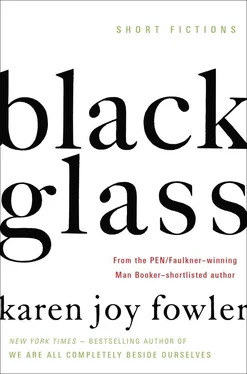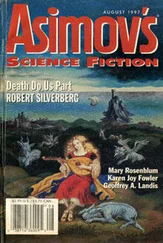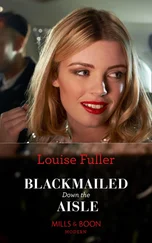God, it was years ago. Years and years ago. I got married. Lauren went to Los Angeles and then to Paris, and now she’s in Washington writing speeches for some senator. Hey, we emerged from the war of the words with some expertise. Gretchen and Julie had a falling-out and hardly speak to each other now. Only when I’m there. They make a special effort for me.
Julie asked me recently why I was so sure there ever had been a real war. What proof did I have, she asked, that it wasn’t a TV movie of the decade? A miniseries? A maxiseries?
It outraged Gretchen. “Don’t do that,” she snapped. “Keep it real.” She turned to me. She said she saw you about a month ago at Fisherman’s Wharf in San Francisco. She said you had no legs.
It doesn’t alarm me as much as you might think. I see you all the time, too. You’re in the park, pushing your kids on the swings and you’ve got one hand and one hook. Or you’re sitting in a wheelchair in the aisle of the movie theater watching The Deer Hunter. Or you’re weighing vegetables at the supermarket and you’re fine, you’re just fine, only it’s never really you. Not any of them.
• • •
SO WHAT DO you think of my war? At the worst I imagine you’re a little angry. “My God,” I can imagine you saying. “You managed a clean escape. You had your friends, you had your games. You were quite happy.” Well, I promised you the truth. And the truth is that some of us went to jail. (Damn few. I know.) Some of us were killed. (And the numbers are irrelevant.) Some of us went to Canada and to Sweden. And some of us had a great time. But it wasn’t a clean escape, really, for any of us.
Look at me. I’m operating all alone here with no affinity group and it seems unnatural to me. It seems to me that I should be surrounded by people I’d trust with my life. Always. It makes me cling to people, even people I don’t care for all that much. It makes me panic when people leave. I’m sure they’re not coming back. The war did this to me. Or you did. Same thing. What did the war do to you?
Look how much we have in common, after all. We both lost. I lost my war. You lost your war. I look today at Vietnam and Cambodia and Laos and I feel sick inside. Do you ever ask yourself who won? Who the hell won?
Your war. I made it up, of course. It was nothing, nothing like that. Write me. Tell me about it. Please. If I have not heard from you by Christmas, I have decided to ask Lauren to go to the monument and look for your name. I don’t want to do this. Don’t make me do this. Just send me some word.
I am thirty-five years old. I am ready to believe anything you say.
They took Alice out every single day. Sometimes she was crying when she came back. Sometimes she was limp and had to be carried. This was not much like Alice.
Alice had been Alice the day she and Tilly had returned to the base camp and found it violated. The tent had been ransacked. The camp lantern had been taken and some of their more brightly colored clothes were gone. A box of tampons had been opened and several unwrapped. Alice picked one up, holding it by its long tail like a dead mouse. She laughed. “What do you suppose they made of these?” she asked Tilly. She stuck the tampon into one of her ears, plugging the other ear with her finger. “Very useful,” she said. “Yes? Sleep late in the mornings. Miss the birds.”
Alice’s cheerfulness was so marked it required explanation. Alice, who was an artist and amateur cartographer, had told Tilly that the blank spaces in maps were often referred to as sleeping beauties. This surprised Tilly, who had never given it any thought. She could not imagine anyone actually functioning with this optimistic attitude toward the unknown. Not without a lot of effort. Here be dragons, was Tilly’s philosophy. Expect the worst and you’ll still be disappointed. Her reaction to the intrusion into their camp had been one of barely controlled alarm. She had known this trip would be dangerous. They had come so casually. They had been very stupid.
But Alice had been Alice. “It was clearly investigative,” she told Tilly calmly. “And not malicious. Nothing was broken. If they had wanted us to go, they would have found an unambiguous way to suggest it. This was just curiosity. Though I do wish they hadn’t taken our light.” Alice had been sitting outside the tent in the sun, since she could no longer work at night. Propped open on her knees, she’d had a lap desk which folded and unfolded; she’d been penciling a curve in the Nhamundá River onto her graph.
The map Alice and Tilly had brought was based on high-altitude infrared pictures. The maps Alice was doing would be much more detailed. On that day she had been working on something whimsical, partly map, partly picture. She had noted the turn in the river and then, in the water, had added the head of a large river turtle — the tracaja. On the day of their arrival, a turtle like this had watched them for hours while they emptied the boat and set up camp. Alice had sung the turtle song from Sesame Street to it, bringing civilization, she said, to the backwards turtles of Brazil, who could have no knowledge of the advances other turtles had made globally. Alice had nieces and nephews and a predilection for information there was no reasonable way she could know anyhow. Tilly didn’t know that song.
Two untidy brown braids rested on Alice’s shoulders. A slight breeze blew the unrestrained wisps of hair into her face. She held them back with her left hand, added an arrow to the map with her right. “You are here,” she’d said to Tilly. Brightly. You are here.
• • •
THE SUN WAS UP. Dim green light filtered through the walls of the tent, which smelled of sleeping bags and hiking boots and moisture. They opened the flaps every day but the tent never lost its hothouse feel. Tilly woke this morning missing Steven. Not memories; she wasn’t thinking. The surface of her body missed him. Her skin. Where’s Steven? it asked. Where’s his mouth? Where’re his hands? She substituted her own hands, but her body knew the difference. And there was another difference, which she recognized, that she would do this in front of Alice now. As if Alice had become part of her like an arm, like Tilly’s left arm, less intimate than the right but part of her all the same.
Although really she believed Alice was still asleep. Sleep was the only escape for Alice now. Tilly would have felt very guilty if she woke Alice from it early. She listened to Alice breathe and tried to guess if Alice were awake or not. Alice moved so seldom; her body was landscape.
Tilly would have liked to get up, but this would have woken Alice for sure, and anyway the tent was clogged with the sleeping mats and bags, with the unused stove, with Tilly’s camera cases, and with Alice’s maps. Tilly could only stand up straight in the very middle of the tent. She had bouts of claustrophobia. Everything Tilly knew, everything Tilly could imagine, was either inside or outside this tent. The two sets were infinitely inclusive. The two sets were mutually exclusive. Except for Alice. Alice could belong to both.
The size of the tent had never bothered her before, when she could come and go as she pleased. In actual fact the tent was probably no smaller than the bedroom she had had as a child, and it had never seemed small to her either, although you couldn’t even open the bedroom door completely; the chest of drawers was behind it. The bedroom was a safe place, a place where you were cared for and protected. You could depend on this so confidently you didn’t even notice it. As Tilly grew older she began to see the shapes and shadows of another world. A girl in the sixth grade at Tilly’s school was followed home by a man in a white car. Tilly was told at the dinner table that she mustn’t talk to strangers. Angela Ruiz, who lived next door, had heard from her cousin in Chicago how some boy she knew was beaten with a pair of pliers by his own father while his mother watched. In Life magazine Tilly saw a picture of a little boy and his two sisters, but there was something wrong about the way they looked, and the article said that their mother hadn’t wanted anyone to know she had children so she’d hidden them in the basement for five years. Without sunshine, without exercise, their growth had been stunted. They were bonsai children. In the last week their vaguely misshapen bodies had returned to Tilly’s dreams.
Читать дальше












